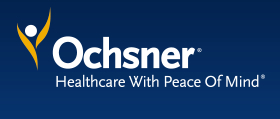Telmisartan Plus Exercise to Improve Functioning in Peripheral Artery Disease
| Status: | Recruiting |
|---|---|
| Conditions: | Peripheral Vascular Disease |
| Therapuetic Areas: | Cardiology / Vascular Diseases |
| Healthy: | No |
| Age Range: | 18 - Any |
| Updated: | 9/7/2018 |
| Start Date: | October 2015 |
| End Date: | April 2021 |
| Contact: | Mary McDermott, MD |
| Email: | mdm608@northwestern.edu |
| Phone: | 312-503-6419 |
The TELEX trial will establish whether telmisartan alone improves walking performance in
people with peripheral artery disease (PAD). The TELEX trial will also determine whether
telmisartan plus supervised exercise improves walking performance more than either therapy
alone. TELEX is a randomized controlled clinical trial (2 x 2 factorial design) of 240
participants with PAD randomized to one of four arms: Group A: telmisartan + supervised
exercise therapy; Group B: telmisartan + a "no exercise" control group; Group C: placebo +
supervised exercise therapy; and Group D: placebo + a "no exercise" control group.
people with peripheral artery disease (PAD). The TELEX trial will also determine whether
telmisartan plus supervised exercise improves walking performance more than either therapy
alone. TELEX is a randomized controlled clinical trial (2 x 2 factorial design) of 240
participants with PAD randomized to one of four arms: Group A: telmisartan + supervised
exercise therapy; Group B: telmisartan + a "no exercise" control group; Group C: placebo +
supervised exercise therapy; and Group D: placebo + a "no exercise" control group.
Inclusion Criteria:
All participants will have PAD. PAD will be defined as follows. First, an ABI <= 0.90 at
the baseline study visit is an inclusion criterion for PAD. Second, potential participants
who have an ABI > 0.90 but ≤ 1.00 and experience a 20% or higher drop in ABI after
heel-rise exercise will be eligible. Third, potential participants with an ABI > 0.90 who
have vascular lab evidence of PAD or angiographic evidence of PAD will be eligible.
Finally, potential participants with a history of lower extremity revascularization who do
not meet the criterion above and have an ABI > 0.90 with a 20% or higher drop in ABI after
heel-rise exercise will be eligible.
Exclusion Criteria:
1. Above or below knee amputation, critical limb ischemia, wheelchair confinement,
inability to walk without a walker, or current foot ulcer.
2. Walking is limited by a condition other than PAD.
3. > Class II NYHA heart failure or angina, increase in angina, angina at rest, or
abnormal baseline treadmill stress test. Potential participants may become eligible
following an abnormal baseline treadmill stress test if they have evidence of an
absence of coronary ischemia based on testing with their own physician.
4. Currently taking an angiotensin receptor blocker or an ACE inhibitor or use of these
medications in the past three months.
5. Currently taking aliskiren (Tekturna).
6. Blood pressure < 110/55 at baseline or potassium > 5.0 meq/L at baseline.
7. Blood pressure < 100/50 after run-in or potassium >= 5.5 meq/L at the end of run-in.
8. Severe hepatic impairment defined by two or more liver function enzyme values greater
than 2.5 the upper limit of normal.
9. Acute decline in renal function on telmisartan, defined as a 30% or greater decline in
eGFR following the two-week run-in as compared to baseline.
10. Allergy to ARBs.
11. Failure to successfully complete the 2-week study run-in, defined as failing to attend
the health education and treadmill exercise run-in sessions and/or failing to take the
study medication daily for 10 or more days in the two-week period (i.e. one pill per
day for > 10 days out of the 14 day run-in period).
12. Surgery including lower extremity revascularization, coronary revascularization with
stenting, or orthopedic surgery during the past 3 months or anticipated in the next 6
months or myocardial infarction or stroke in the past 3 months.
13. Major medical illness including renal disease requiring dialysis, lung disease
requiring oxygen, Parkinson's disease, a life-threatening illness with life expectancy
less than six months, or cancer requiring treatment in the previous two years. [NOTE:
potential participants may still qualify if they have had treatment for an early stage
cancer in the past two years and the prognosis is excellent. Participants who only use
oxygen at night may still qualify.]
14. MMSE score < 23 or dementia.
15. Currently walking regularly for exercise at a level similar to the study intervention.
16. Participation in another clinical trial or cardiac rehabilitation or completion of a
clinical trial or cardiac rehabilitation in the previous three months. [NOTE: after
completing a stem cell or gene therapy intervention, participants will become eligible
after the final study follow-up visit of the stem cell or gene therapy study so long
as at least six months have passed since the final intervention administration. After
completing an exercise intervention or a supplement or drug therapy (other than stem
cell or gene therapy), participants will be eligible after the final study follow-up
visit as long as at least three months have passed since the final intervention of the
trial.]
17. Non-English speaking, a visual impairment that limits walking ability, or a hearing
impairment that interferes with study participation.
18. Heart failure with an ejection fraction <40% at baseline.
19. In addition to the above criteria, investigator discretion will be used to determine
if the trial is unsafe or not a good fit for the potential participant.
We found this trial at
3
sites
Click here to add this to my saved trials
303 East Superior Street
Chicago, Illinois 60611
Chicago, Illinois 60611
Principal Investigator: Mary McDermott, MD
Phone: 312-503-6438
Click here to add this to my saved trials
1514 Jefferson Hwy.
New Orleans, Louisiana 70121
New Orleans, Louisiana 70121
504-842-3000

Principal Investigator: Lydia Bazzano, MD
Phone: 504-842-4747
Ochsner Medical Center Ochsner Medical Center is located near uptown New Orleans and includes acute...
Click here to add this to my saved trials